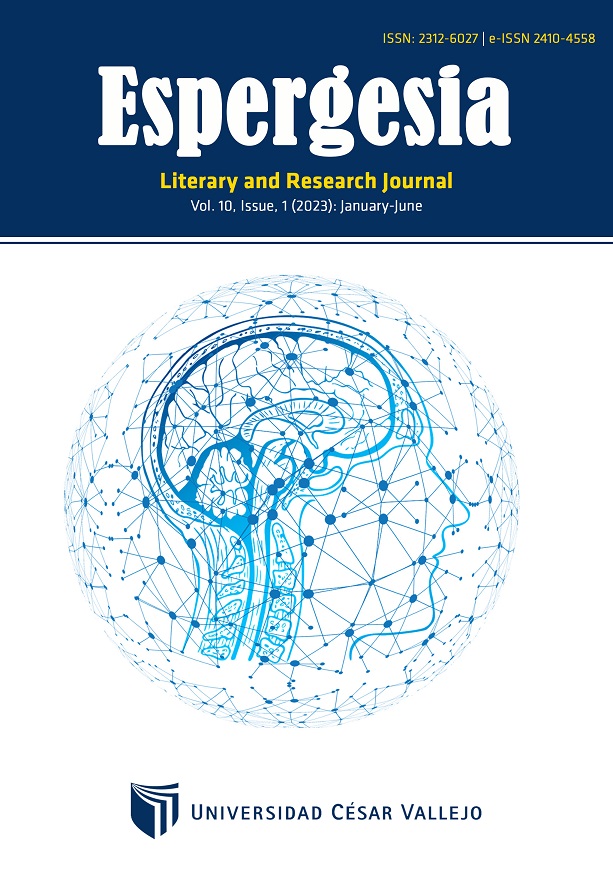Grit Competency, Growth Mindset, and Mental Ability among Filipino High School Students
DOI:
https://doi.org/10.18050/rev.espergesia.v10i1.2427Abstract
Educators and mental health professionals have promoted social and emotional learning (SEL) as the foundation for safe and positive education. SEL factors such as grit competency and growth mindset were the critical factors in this research, along with the student’s mental ability level. Grit competency pertains to one’s ability to work hard, overcome setbacks, finish tasks, and set long-term goals. At the same time, a growth mindset refers to believing intelligence and ability can change with persistence and practice and believing interests and behaviors can positively change with effort and learning. This research aimed to determine the grit and growth mindset levels of 137 all-female Filipino senior students from Quezon City and test their relationship with mental ability. A standardized test measured grit competency and growth mindset, while the Otis-Lennon School Ability Test, 7th Edition (OLSAT-7), measured cognitive ability. Results signified a low and negative relationship between grit competency and mental ability, with r = -.152 and p = 0.039 < 0.05. Similarly, there was a low and negative relationship between a growth mindset and cognitive ability with a value of r = -.157 and p = 0.034 < 0.05.
Keywords: Grit Competency; Growth Mindset; Mental Ability; High School Students.
References
Aguerre, N. V., Gómez-Ariza, C. J., & Bajo, M. T. (2022). The relative role of executive control and personality traits in grit. Plos one, 17(6), e0269448. https://doi.org/10.1371/journal.pone.0269448
Credé, M., Tynan, M. C., & Harms, P. D. (2017). Much ado about grit: A meta-analytic synthesis of the grit literature. Journal of Personality and Social Psychology, 113(3), 492. https://psycnet.apa.org/doi/10.1037/pspp0000102
Duckworth, A. L., & Quinn, P. D. (2009). Development and validation of the Short Grit Scale (GRIT–S). Journal of personality assessment, 91(2), 166-174. https://doi.org/10.1080/00223890802634290
Duckworth, A. L., Kirby, T. A., Tsukayama, E., Berstein, H., & Ericsson, K. A. (2011). Deliberate practice spells success: Why grittier competitors triumph at the National Spelling Bee. Social psychological and personality science, 2(2), 174-181. https://doi.org/10.1177/1948550610385
Duckworth, A. L., Peterson, C., Matthews, M. D., & Kelly, D. R. (2007). Grit: Perseverance and passion for long-term goals. Journal of Personality and Social Psychology, 92(6), 1087–1101. https://doi.org/10.1037/0022-3514.92.6.1087
Duckworth, A., & Gross, J. J. (2014). Self-control and grit: Related but separable determinants of success. Current directions in psychological science, 23(5), 319-325. https://doi.org/10.1177/0963721414541462
Eskreis-Winkler, L., Shulman, E. P., Young, V., Tsukayama, E., Brunwasser, S. M., & Duckworth, A. L. (2016). Using wise interventions to motivate deliberate practice. Journal of Personality and Social Psychology, 111(5), 728–744. https://doi.org/10.1037/pspp0000074
Jiang, W., Jiang, J., Du, X., Gu, D., Sun, Y., & Zhang, Y. (2020). Striving and happiness: Between-and within-person-level associations among grit, needs satisfaction and subjective well-being. The Journal of Positive Psychology, 15(4), 543-555. https://doi.org/10.1080/17439760.2019.1639796
Kleiman, E. M., Adams, L. M., Kashdan, T. B., & Riskind, J. H. (2013). Gratitude and grit indirectly reduce risk of suicidal ideations by enhancing meaning in life: Evidence for a mediated moderation model. Journal of Research in Personality, 47(5), 539-546. https://doi.org/10.1016/j.jrp.2013.04.007
Li, J., Fang, M., Wang, W., Sun, G., & Cheng, Z. (2018). The influence of grit on life satisfaction: Self-esteem as a mediator. Psychologica Belgica, 58(1), 51. https://doi.org/10.5334%2Fpb.400
Li, Y., & Bates, T. C. (2019). You can’t change your basic ability, but you work at things, and that’s how we get hard things done: Testing the role of growth mindset on response to setbacks, educational attainment, and cognitive ability. Journal of Experimental Psychology: General, 148(9), 1640–1655. https://doi.org/10.1037/xge0000669
Paunesku, D., Walton, G. M., Romero, C., Smith, E. N., Yeager, D. S., & Dweck, C. S. (2015). Mindset interventions are a scalable treatment for academic underachievement. Psychological science, 26(6), 784-793. https://doi.org/10.1177/0956797615571017
Perkins-Gough, D. (2013). The significance of grit: A conversation with Angela Lee Duckworth. Educational leadership, 71(1), 14-20. https://eric.ed.gov/?id=EJ1032665
Rattan, A., Savani, K., Chugh, D., & Dweck, C. S. (2015). Leveraging mindsets to promote academic achievement: Policy recommendations. Perspectives on Psychological Science, 10(6), 721-726. https://doi.org/10.1177/1745691615599383
Downloads
Published
How to Cite
Issue
Section
License
Copyright (c) 2023 Jowie Lumanog Advincula

This work is licensed under a Creative Commons Attribution-NonCommercial 4.0 International License.







